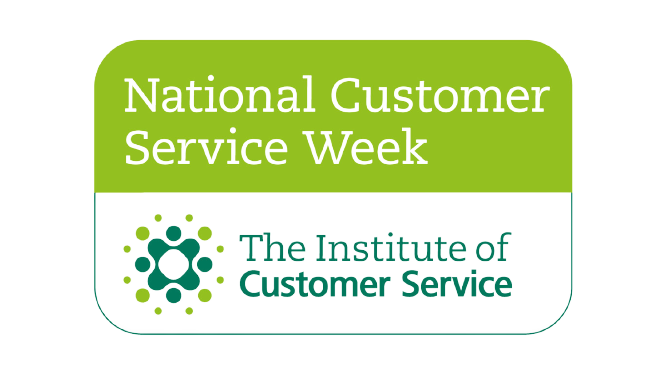
National Customer Service Week is a time to reflect on the impact that advanced technology is having in the customer service space – including the shift from traditional customer service to elevated customer experiences.
An article in the Financial Times recently highlighted that there has been a decline in customer service in the UK, worsened by poor digital systems and understaffing. As we approach, arguably, the busiest shopping season of the year, it’s more important than ever to ensure companies have good systems in place to provide excellent customer experience – making sure businesses thrive beyond expectations.
Redefining customer service
Through the power of technology, brands are now able to build highly personalised and extremely customer-centric experiences. But where is work still needed?
Kathie Johnson, Chief Marketing Officer, Sitecore explains: “As customer expectations evolve, brands can no longer afford to treat customer service as a reactive, isolated function. In today’s digital landscape, organizations must deliver consistent, personalized experiences across every interaction to deliver a standout customer experience. It’s an approach many of our customers, such as United Airlines, Greene King, and L’Oreal have shown works. As a result of forward-looking brands setting the standard, however, customers often now expect seamless interactions from all brands, whether in person or digitally. This expectation shift means brands must prioritize complete, end-to-end engagement at every touchpoint – whether it’s a website, chatbot, or in-store visits – it must feel connected and tailored to individual needs.”


“Furthermore, customers are increasingly demanding personalized search and content discovery experiences. Tools such as personalized search enable unique experiences across digital properties that seamlessly suggest and predict relevant content and products in real-time that mirror a customers’ preferences and history. Empowering customers with the right tools can significantly improve satisfaction and efficiency. Transforming the search and content experience doesn’t just improve customer satisfaction; it drives long-term loyalty.”
“When brands can meet customers where they are, anticipate their needs, and provide seamless, personalized service, they transform one-off interactions into lasting relationships. In today’s marketplace, exceptional digital experience is the key to staying competitive, and it starts by rethinking customer service.”
Echoing the importance of customer experience, Simon Ranyard, Managing Director, Northwest Europe at Orange Business adds: “This year’s National Customer Service Week is a great reminder of just how crucial customer experience is. The future of customer service isn’t just about technology – it’s about blending tech with a human touch to create seamless, personalised experiences. By tapping into AI, automation, and data analytics, companies can get ahead of customer needs, responding with speed and precision. But here’s the thing: technology alone isn’t enough. Trust is everything. Customers expect transparency, respect, and data privacy at every step, and building that trust is essential for long-term success.”
Paving the way with advanced technology & AI
Advanced technologies and AI have also become a driving force powering much of customer service success. Kamil Jagodzinski, Vice President of Customer Service at TravelPerk comments that: “Artificial Intelligence (AI) technology can transform how a business’ customer service operates, however how you adopt its capabilities is the key to its success.”
“We use AI to fix real customer pain points, implementing AI to automate manual tasks and allow our employees to focus on the customer. At TravelPerk, before AI, a team of human agents would review thousands of daily customer service emails. Today over 97% of these are triaged by AI, enabling our teams to handle double the volume of customer queries versus 2023, with the same number of human agents.
“AI and tech advances make things more efficient, but we know from our research that only 9% of business travellers are happy to speak to a customer service chatbot when they need to make changes to their booking. And this feeling is widespread across industries: people still want to speak to a real human when something unexpected unfolds and they need a solution.
From AI to chatbots, EJ Cay, UK&I VP, Genesys, adds: “Delivering high-quality customer service should be a priority for every business. As customer expectations grow and evolve, companies need systems that not only respond rapidly but also provide efficient and empathetic experiences. The emergence of advanced technologies, such as generative AI, has introduced new platforms to help manage and meet these expectations.”
“Take chatbots, for example. AI-powered chatbots can free up employees’ time, allowing them to focus on more complex customer service issues. When chatbots are integrated with human agents, they facilitate smoother, more complex conversations and help personalise the customer journey. Our research shows that customer satisfaction increased by 61% when AI was combined with human agents, underscoring the potential of AI in the present and future of customer service.”



Data optimisation is also an important factor to consider for improved customer service, James Fisher, Chief Strategy Officer, Qlik says: “Customers today have high expectations from brands – to deliver quick, personalised and seamless services whether they are online or in store. With access to good quality data in close to real-time, powered by AI, brands can meet these expectations and build customer loyalty.”
“Retail businesses often operate across multiple locations or have complex supply chains. Having a central source for all data, from up-to-date information about stock levels to insights into when demand is likely to peak and require more employees on shift, makes it possible to take well-informed decisions and improve experiences.”
“With high expectations from customers, retailers need to be agile and empowered to anticipate and react to customers’ needs – and data, analytics and AI, alongside automation and agents, can all make this possible.”
The road ahead
Leveraging advanced technology and AI allows us to elevate traditional customer service. AI driven personalisation can be used to create more tailored experiences and technology such as chatbots free up agents time to handle more complex customer service issues.
With customers increasingly enjoying a mixture of both technology and human support, going forward its crucial to strike the right balance between technology and agent support. Working to combine the efficiency of technology with the empathy of human agencies – to achieve a high level of customer experience.

National Customer Service Week
National Customer Service Week is a week-long opportunity to raise awareness of customer service and the vital role it plays in successful business practice and the growth of the UK economy.


